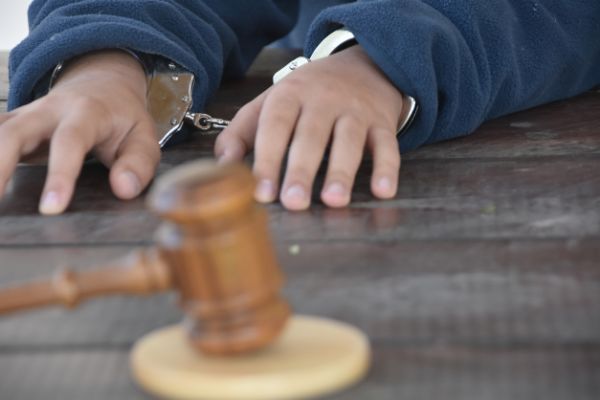|
July 2019 marked one year since New York State’s mandate of mental health education among K-12 students. The mandate was the first in the country and was designed with the hope that education would create an environment of mental health awareness. The requirement recognized the fact that mental well-being is just as important as physical health. It came amongst research demonstrating an alarming increase in rates of depression, anxiety, and suicide among American teens.
Is it Working? While it may be too soon to tell the impact this education is really having on students, school districts believe it’s helping. The quality of mental health education depends on the individual school districts. The mandate does not specify the manner in which the education should be administered and doesn’t dictate a curriculum. School districts have quite a bit of latitude when deciding the programs they put in place. The downside of this lack of uniformity is that some programs work, and some don't. Students in districts where the program doesn't work are unfortunately not experiencing the full benefit of well-developed mental health education. Some school districts have developed peer mentoring and advocacy programs. Others, such as the Niagara Fallsschool district have chosen to implement mental health education by increasing extracurricular programs for students. This in stark contrast to many school districts who have simply added mental health education as a subject that is discussed in one day in health class. The State hoped that the addition of mental health education in the school would lead to the development of an environment of support. The State envisioned peer support groups, peer advocacy, and greater mental health awareness as part of the program. It is clear that this type of education is necessary. Most mental illnesses develop during the teen years, and early intervention and treatment can lead to better outcomes. If a teen with a mental health problem is recognized early through the environment created by a mental health education program, then future issues can be properly addressed. If you or a loved one has a mental disability and has been arrested or convicted of a crime, you need an experienced criminal defense attorney on your side. Elizabeth Kelley specializes in representing individuals with mental disabilities. To schedule a consultation call (509) 991-7058. In the face of a rising rate of suicides among veterans, the Department of Veteran’s Affairs has decided to approve the use of a new, expensive drug to treat depression. This is despite concerns among doctors and other experts regarding the effectiveness of the drug. The drug is called Spravato and is manufactured by a division of Johnson & Johnson. The VA has approved the use of the drug, also known as esketamine, by doctors in its more than 1,000 clinics across the nation.
Spravato The Food and Drug Administration (FDA) approved the use of Spravato for severe depression in March of 2019. The drug represents a new direction in depression treatment. Spravato is a nasal spray derived from an anesthetic called ketamine. The drug is a departure from the usual antidepressants such as Prozac. The nasal spray contains esketamine, an active part of the ketamine molecule. It is recommended that it be taken twice a week for four weeks with later boosters as needed. The drug is usually taken in conjunction with more traditional antidepressants. People taking Spravato are monitored in the doctor’s office for two hours after taking the drug due to side effects such as hallucinations. Issues With the Drug Experts are not completely convinced of the effectiveness of Spravato in treating severe depression. The development of the drug came after a number of small studies found that generic ketamine provided fast relief to some severely depressed people who failed to respond to other treatments. Doctors believe that, since Spravato is different from generic ketamine, further trials and studies should be conducted. Generic ketamine has been available for some time and is used by a number of doctors to treat severe depression. It is administered through a number of intravenous doses that cost about $400 per dose. Spravato, on the other hand, costs up to $7,000 for a course of treatment and additional clinic costs due to the monitoring that must take place. If you or a loved one has a mental disability and has been arrested or convicted of a crime, you need an experienced criminal defense attorney on your side. Elizabeth Kelley specializes in representing individuals with mental disabilities. To schedule a consultation call (509) 991-7058. The New York Police Department is in the midst of a mental health crisis after another officer died by suicide. This latest death brings the total number of suicide deaths at the NYPD up to nine as of August 2019. Since 2014, in New York City, an average of five officers have died by suicide each year. These deaths have prompted commanders to urge despondent officers to seek counseling and help. However, there is a mental health stigma in the department and other barriers that may be preventing officers from getting the help they need.
Mental Health Stigma Despite strides being made in the community as a whole, there is still shame and stigma surrounding mental illness in the NYPD. Officers who seek mental health counseling are sometimes seen as weak. Officers are expected to handle their issues themselves and not seek help. Bravery and courage are part of being a police officer, and admitting what is seen as a weakness can have a negative influence on one’s appearance among colleagues. Some officers fear their careers will suffer if they seek counseling. Studies have shown that first responders are more likely to die by suicide than to be killed in the line of duty. Officers should be made to feel comfortable seeking help. They should also receive mandatory counseling after responding to tragic situations or when experiencing an overwhelming life event. The NYPD has had limited success encouraging officers to seek help. Officers have different avenues available to them to seek assistance, including peer counseling, hotlines, and department chaplains. For most officers, however, the idea of vulnerability is incompatible with the image they have of being heroes. Other Barriers In addition to the stigma surrounding mental health in the NYPD, there are other barriers that prevent officers from receiving the help they need. While there are a number of department resources available to officers, there is clearly not enough anonymous help out there. Officers need a place where they can feel safe and free from judgment when seeking help. Hotlines and chaplains are not enough. Trained counselors available to officers for free would be a more helpful solution. In addition, the City's insurance makes it difficult for officers to seek mental health care outside of the job. The insurance pays therapists a low fee, and many therapists refuse to take the insurance. Some therapists agree to take the low paying insurance in an effort to help the community, but therapists also need to make a living and can't work with the fees that are offered. The City clearly needs to make sure that all employees have adequate mental health coverage. If you or a loved one has a mental disability and has been arrested or convicted of a crime, you need an experienced criminal defense attorney on your side. Elizabeth Kelley specializes in representing individuals with mental disabilities. To schedule a consultation call (509) 991-7058. 9/20/2019 California's Costco Shooting Sheds Light on Need for Mental Disability Training for Law EnforcementRead Now Tragedy struck in June at a Corona, California Costco, when a 32-year old man was fatally shot by an off-duty Los Angeles Police Department officer. The officer also wounded the parents of Kenneth French. The officer's gun was the only one involved in the incident. While it is unclear what provoked the shooting, witnesses had stated that Kenneth French initiated the interaction when he pushed the officer who was holding his toddler son. The action was unprovoked.
Kenneth French's parents attempted to intervene and explain that their son had a mental disability. French was a man who was schizophrenic, nonverbal, and suffered from an intellectual disability. French had been experiencing a medication change at the time. When French’s mother stepped in between the officer and her son, she was shot in the back. French’s father was also shot during the incident. French was ultimately killed by the officer. The officer was placed on administrative leave. Need for Training This tragic incident underscores the need for law enforcement officers to be trained on how to handle situations involving people with mental disabilities. Once the officer was informed that French had a mental disability, the officer should have handled the situation differently. With proper training, he may have been able to defuse the situation without violence. Law enforcement should be trained on appropriate de-escalation tactics to use when faced with a person who has a mental disability. While LAPD officers do receive some training on how to handle mental health crises, it is clear that more education is needed. People with intellectual and developmental disabilities sometimes act out their frustrations physically rather than verbally. They don't interpret their environment the same way other people do. Yelling or getting into an argument with the person is not the answer. Family members often know how to defuse the situation properly, but in this case, French's family was shot rather than given the opportunity to calm their son down. Officers should be trained to take cues from family members and caretakers when handling mental health crises. Unfortunately, without proper training of law enforcement officer, the world becomes a dangerous place for those with mental disabilities. Their lives are in jeopardy every time they leave their homes. Individuals with mental disabilities should be able to look to law enforcement for help in a crisis and not be afraid they will be injured if they approach a police officer. If you or a loved one has a mental disability and has been arrested or convicted of a crime, you need an experienced criminal defense attorney on your side. Elizabeth Kelley specializes in representing individuals with mental disabilities. To schedule a consultation call (509) 991-7058. Schizophrenia is a mental illness characterized by delusions and hallucinations, such as hearing voices. People with schizophrenia also experience confusion and memory problems. Symptoms of schizophrenia typically begin to emerge when an individual is in their early 20s. Often, however, people go undiagnosed for years. New artificial intelligence technology may be able to predict the symptoms of schizophrenia earlier, which can help people with the condition get early treatment.
Speech Recognition Harvard and Emory University researchers have developeda machine-learning approach to analyzing an individual's language for signs of psychosis. The system can detect subtle characteristics in the way someone speaks, which can be indicative of future mental illness. The system has been able to successfully evaluate the use of words and the semantic density to predict which individuals would develop future psychosis. Individuals who develop mental psychosis tend to have a vagueness to their language that the system can detect. They also implicitly talk about voices and sounds in their head. Using a technique called vector unpacking, researchers were able to measure a sentence's richness by dividing it into component vectors. Researchers developed a “norm” for language using the online conversations of 30,000 Reddit users. It analyzed hundreds of conversations and developed a norm that consisted of 401 million words. The study then compared the language of the test subjects to this norm to determine if there were any differences. Researchers then studied 40 participants who had been evaluated for schizophrenia. These individuals were then tested using the language system. Follow-ups were conducted every six months until they developed psychosis. Video recordings of interviews were taken, and then the artificial intelligence (AI) system evaluated the speech to determine if there were predictors of psychosis. The system was able to predict psychosis with 93% accuracy. Earlier Treatment The use of this AI technology can help predict psychosis before it happens. This can lead to much needed mental health treatment for individuals with schizophrenia. Stopping the psychosis before it happens can help prevent negative outcomes and issues for those with schizophrenia. Researchers are hopeful that the technology can be used for other mental conditions and that it will become part of the future of mental health treatment. If you or a loved one has a mental disability and has been arrested or convicted of a crime, you need an experienced criminal defense attorney on your side. Elizabeth Kelley specializes in representing individuals with mental disabilities. To schedule a consultation call (509) 991-7058. A bill signed into law in July by New Jersey Governor Phil Murphy would restrict the use of solitary confinement in the state’s prison system. When signing the law, the governor stated: "I am proud to stand together with New Jersey’s criminal justice reform advocates and legislators to advance a humane correctional system that allows for the safe operation of facilities and focuses on strengthening reentry initiatives, substance use disorder treatment, and recovery programs.”
Comprehensive Controls This new law is thought to be among the most comprehensive controls of the practice of placing inmates in isolation in the United States. The state Legislature had been debating the issue for years. Corrections officials assert that the use of solitary confinement has been strictly controlled through prison policies and practices but that the new law ensures that these practices will remain permanent. Prison critics, however, believe that some New Jersey prisons were still using isolation as a means of punishing inmates. Advocacy groups collected the testimony of inmates who had been in isolation for months. Reports also found that prisoners who were isolated were typically kept in segregation units for more than 30 days. These groups believe the controls were essential. Now inmates can only be placed in isolation if there is reasonable cause to believe that the inmate or others would be at substantial risk of serious harm. It also prohibits isolation for vulnerable populations such as those under 21 years old, over 65 years old, pregnant, LGBTQ, or with disabilities. Prisons are also required to screen inmates for mental illness before and after confinement. Confinement will be limited to 20 straight days or 30 nonconsecutive days over two months. This is a huge reduction from the indefinite sentences inmates received in the past. The Damage of Solitary Confinement It has been well-documented the use of solitary confinement is detrimental to the mental health of inmates. Inmates with existing mental health issues are especially prone to harm. These negative psychological effects are often irreversible. There is now a growing trend nationwide towards restricting the use of solitary confinement, although New Jersey has been the most successful. If you or a loved one has a mental disability and has been arrested or convicted of a crime, you need an experienced criminal defense attorney on your side. Elizabeth Kelley specializes in representing individuals with mental disabilities. To schedule a consultation call (509) 991-7058. According to a recent study, children with autism spectrum disorder (ASD) are more likely than their peers to experience bullying. In addition, it was found that the bullying became worse as the children got older. As a consequence of their social skill deficits, difficulties in relationships, and emotional reactivity, children with ASD are thought to be the “perfect victim” of bullying. Many children with ASD lack the ability to stand up to bullying and don’t know how to seek help. The study hopes to make clear that bullying of children with ASD is a serious issue and to make parents and educators aware of the issue.
The Study The study out of Binghamton University first aimed at contextualizing bullying. The study focused on the teachers and parents of children with ASD as well as members of the community who did not have children with ASD. Study participants took a survey involving 80 scenarios of interactions between two school-aged children. Sixty-four of the scenarios contained bullying behavior, whether it was physical, verbal, interpersonal, or cyber. Participants were asked to rate the severity of the interaction and categorize the type of bullying behavior. The study found that parents and teachers of children with ASD predicted higher severity of bullying scenarios than those without children with ASD. The study showed that bullying behavior was especially problematic for parents of older children with ASD. Researchers plan to further the study to determine whether the types of bullying children with ASD experience differs from other bullying scenarios. Mainstream Schooling A survey by Autism Speaks found that children with ASD who were mainstreamed at school were 6.5 times more likely to experience bullying than children in a special needs setting. A reason for this may be that, despite being mainstreamed, children with ASD are still treated differently from their peers. Many remain isolated despite being in a classroom full of children. It is important for parents and teachers to understand the prevalence of bullying and that schools adopt anti-bullying policies to help these children feel safe. If you or a loved one has a mental disability and has been arrested or convicted of a crime, you need an experienced criminal defense attorney on your side. Elizabeth Kelley specializes in representing individuals with mental disabilities. To schedule a consultation call (509) 991-7058. Attention-deficit/hyperactivity disorder (ADHD) affects girls just as much as it affects boys. However, many girls with ADHD do not get the treatment they need as their condition is misdiagnosed. This can lead to long term issues for girls, including problems in school and personal relationships.
Diagnostic Bias Despite the fact that ADHD is equally present in girls as it is in boys, it is still thought of as a male disorder. Consequently, girls with the condition are less likely than boys to receive appropriate treatment. As a result, ADHD has a disparate impact on women. Women with the condition are frequently misdiagnosed with emotionally based psychiatric issues such as mood disorders and anxiety. The problem begins in childhood when girls attempt to compensate and hide their ADHD symptoms. Generally, girls are more willing to try harder in school and to ask for help when needed. Girls are also generally more likely to be “people pleasers” and look for ways to behave appropriately and fit in even though inside they feel very different from their peers. Yet many girls with ADHD exhibit the hyperactivity and inattentiveness that are symptomatic of the condition and are still overlooked because ADHD is thought of as a male disorder. Seeking a Diagnosis The most common diagnosis women and girls with ADHD receive is depression. ADHD symptoms can make girls more emotionally dysregulated, and this can add to the perception that a girl has a mood disorder. Even when they receive therapy and treatment for a mood disorder, they likely still experience ADHD symptoms. Families can go through months and years of frustration before a proper diagnosis is achieved. This is because many doctors use an outdated method of evaluating ADHD. The criteria fail to take into account the fact that many girls with the disorder fly under the radar and don't necessarily exhibit the same symptoms as boys. This can lead to increased frustration and a lack of proper treatment. Left untreated ADHD can cause significant issues as girls get older. If you or a loved one has a mental disability and has been arrested or convicted of a crime, you need an experienced criminal defense attorney on your side. Elizabeth Kelley specializes in representing individuals with mental disabilities. To schedule a consultation call (509) 991-7058. According to a recent report, more than 90% of the youth incarcerated at Los Angeles County's Central Juvenile Hall have open mental health cases. This is a shocking number and emphasizes the point that jails in this country have become de facto mental health facilities. Juvenile detention facilities are not equipped to handle serious mental health issues. About 30% of incarcerated youth suffer from mood disorders such as clinical depression and bipolar disorder. Incarcerated youth should be getting treatment for their illness and not be simply warehoused in facilities. As a result of the report, the Los Angeles County Board of Supervisors pledged to make changes and improve mental health care for young people involved in the criminal justice system.
Addressing Mental Health Needs LA County has failed to adequately address the mental health needs of young people involved in the criminal justice system. There should be more services available to youth in detention facilities. In addition, programs should be put in place to divert young people with mental health issues away from the traditional criminal justice system and into therapeutic placements in the community. The problem in LA's juvenile detention facilities was noted in a 2003 report from the US Department of Justice. Over the past 16 years, the county has done little to address the problem. Instead, a report issued earlier this year found a disturbing increase in the use of pepper spray and the use of force incidents. This indicates that the detention centers are not properly addressing the mental health needs of their inmates and are instead relying on more disturbing tactics to handle issues. Moving Forward The County Board of Supervisors ordered the Department of Mental Health (DMH) to assess the mental health needs of youth in juvenile detention facilities. DMH has also been ordered to develop and implement trauma-informed approaches to these mental health needs and to develop strategies for reducing the use of force. The challenge comes in finding appropriate treatment services in the community. Many residential treatment facilities have closed or changed their policies on accepting juvenile justice youth. Adding funding for specialized treatment facilities can help with juvenile diversion programs. If you or a loved one has a mental disability and has been arrested or convicted of a crime, you need an experienced criminal defense attorney on your side. Elizabeth Kelley specializes in representing individuals with mental disabilities. To schedule a consultation call (509) 991-7058. |
Details
Archives
March 2024
Categories |









 RSS Feed
RSS Feed